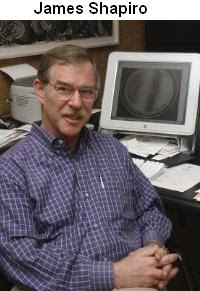I will be attending the Royal Society Meeting on New trends in evolutionary biology: biological, philosophical and social science perspectives. I'll post each of the abstracts and ask for your help in deciding what question to pose to the speakers. Here's the abstract for Susan Antón's talk on Human evolution, niche construction and plasticity.
Recent humans are biocultural organisms. Our worldwide distribution and status as the lone surviving species of our genus signal a level of evolutionary success often explained by both biological and cultural mechanisms. A bio-behavioural package of traits that co-exist in Homo sapiens, including large brains and bodies, small teeth and jaws, extensive cooperative care, a great deal of developmental plasticity, and an extensive amount of niche construction, are variously implicated in our success or seen as its result.Susan Antón is a professor of anthropology at New York University (New York, NY, USA).
It is broadly accepted that recent humans are ‘different’, particularly in the extent of our cultural interventions, than our earlier hominin forebears. But whether this is a difference in kind or degree, how far back that difference stretches, and whether those outcomes modifiable over an individual’s lifetime are important to human evolution is open to debate. Regardless of whether we accept exogenetic changes – including developmental niche construction – as consistent with an extension of, or break with the evolutionary synthesis, Homo erectus has often been proposed as the locus at which more ‘human like’ modes of behaviour (and presumably more biocultural evolution) is seated. But the paucity of the fossil record and the tenuously established links between bones and behaviours of interest limit our ability to test these assertions. I review the evolution of Homo and recent attempts to locate the transition to a biocultural organism with new data and by both working back from recent humans through archaeological time and working forward from ancestral genera.
It's interesting to learn about the history of life and the evolution of a particular species. However, that specific history usually doesn't usually have much impact on evolutionary theory. I wonder if some speakers are confused about the relationship between studying the history of life and the big picture of evolutionary theory? I fail to see how this study translates to a deeper understanding of the evolution of mushrooms, maple trees, and microbacteria.











